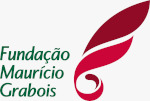Dialectics versus Enlightenment-based Positivism
The philosophical debate behind the new projectment theory
DOI:
https://doi.org/10.14295/principios.2675-6609.2025.172.004Keywords:
New projectment theory, Enlightenment-based positivism, Philosophy, Epistemology, DialecticsAbstract
We present a program of philosophical studies that seeks to rethink the rela- tionship between theory and practice through the lens of the new projectment theory and its elaboration on the profound transformations within the Chinese socialist experience. This work thus aims to make explicit and deepen the gno- seological foundations that sustain and operate within the conceptual archi- tecture of the new projectment theory, reaffirming the political imperative to mobilize a new methodological grammar in which technical development and theory are subordinated to the practice of social and national liberation. We highlight the necessity of overcoming the current epistemic regime of Enligh- tenment-positivist scientificity in favor of a higher synthesis, thereby reframing the relationship between science and philosophy. This requires emphasizing the lines of connection that animate and actualize Hegel’s conceptual critique of Kant—particularly the dialectical overcoming of the a priori structures of understanding and its consequences for notions of the epistemic subject, the logic of identity, and the conditions of possible experience. Our concern, there- fore, lies with the dialectical engendering and operationalization of categories that transcends the dichotomy between the development of techno-scientific forces and the flourishing of emancipatory social policies.
Downloads
References
ARISTÓTELES. Órganon: Categorias, Da interpretação, Analíticos anteriores, Analíticos posteriores, Tópicos, Refutações sofísticas. Tradução, textos adicionais e notas Edson Bini. Bauru, SP: Edipro, 2005.
CAPOVILLA, Cristiano. Os dispositivos de dominação neocolonial e o ocaso das humanidades. Princípios, v. 39, n. 159, p. 307-320, jul.-out. 2020.
______; PALÁCIO, Fábio. Visões da pandemia: as teses de Giorgio Agamben como idealizações do Ocidente. Princípios, v. 40, n. 160, p. 24-59, fev. 2021.
DELEUZE, Gilles. A filosofia crítica de Kant. Lisboa: Edições 70, 1994.
HEGEL, Georg W. F. Diferença entre os sistemas filosóficos de Fichte e de Schelling. Lisboa: Imprensa Nacional; Casa da Moeda, 2003.
______. Ciência da lógica: 1. A doutrina do ser. Petrópolis: Vozes; Bragança Paulista: Editora Universitária São Francisco, 2016.
______. Ciência da lógica: 2. A doutrina da essência. Petrópolis: Vozes; Bragança Paulista: Editora Universi- tária São Francisco, 2017.
______. Fenomenologia do espírito. 6. ed. Tradução Paulo Meneses. Petrópolis: Vozes, 2001.
JABBOUR, Elias; CAPOVILLA, Cristiano. Challenging Western Marxism. Socialism and “new projectment” in today’s China. World Marxist Review, v. 2, n. 2, p. 1-24, 2024a.
______. Pressupostos dialéticos acerca do socialismo e projetamento na China de hoje. Economia e Socie- dade, Campinas, v. 33, n. 3, p. 1-24, 2024b.
JABBOUR, Elias; GABRIELE, Alberto. China: o socialismo do século XXI. São Paulo: Boitempo, 2021.
KANT, Immanuel. Crítica da razão pura. 5. ed. Lisboa: Fundação Calouste Gulbenkian, 2001.
LOSURDO, Domenico. Liberalismo: entre civilização e barbárie. São Paulo: Anita Garibaldi, 2006.
MARX, Karl; ENGELS, Friedrich. A ideologia alemã. São Paulo: Boitempo, 2007.
MARX, Karl. Para a crítica da economia política. In:______. Para a crítica da economia política; Salário, preço e lucro; O rendimento e suas fontes. São Paulo: Abril Cultural, 1982. p. 1-132.
MÜLLER, Marcos L. A contradição dialética e a sua resolução no fundamento. In: ______. Ensaios filosóficos I: entre Marx e Hegel. Campinas: Phi, 2004. p. 223-245.
PALÁCIO, Fábio; CAPOVILLA, Cristiano. Posverdad: etapa suprema de la postmodernidad. In: MANCINAS- -CHÁVEZ, Rosalba; CARDENAS RICA, Maria Luisa (Coord.). Medios y comunicación en tiempos de posver- dad. Madrid: Editorial Fragua, 2021. p. 183-203.
RANGEL, Ignácio. Elementos de economia do projetamento. In: ______. Obras reunidas. Rio de Janeiro: Contraponto, 2005. v. 1, p. 355-446.
Referências bibliográficas
RAWLS, Jonh. Uma Teoria da Justiça. 3a ed. São Paulo: Martins Fontes. 2008
Downloads
Published
Versions
- 2025-06-23 (2)
- 2025-06-08 (1)










